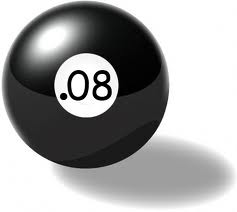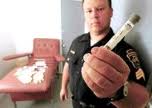 San Diego law enforcement pulled you over on suspicion of drunk driving. They conducted a DUI investigation and then arrested you for driving under the influence. The police should have advised you that you must submit to a breath or a blood test per the implied consent law.
San Diego law enforcement pulled you over on suspicion of drunk driving. They conducted a DUI investigation and then arrested you for driving under the influence. The police should have advised you that you must submit to a breath or a blood test per the implied consent law.
If your test came back below a .08 percent blood-alcohol content, or BAC, assuming there were no drugs in your system at the time, you may believe that you will not be charged with driving under the influence. However, the prosecutor may still file charges against you.
Under California law, it is unlawful to drive a vehicle while under the influence of alcohol, drugs, or a combination of alcohol and drugs. This is commonly called the “a” count because the California Penal Code Section for this charge is 23152(a).
However, people are often more familiar with the “b” count under California Vehicle Code Section 23152. This section states, “It is unlawful for any person who has a 0.08 percent or more, by weight, of alcohol in her or her blood to drive a vehicle.”
Under the California Jury Instructions, which lay out exactly what the prosecuting agency must prove, #2110 states: A person is under the influence if, as a result of drinking an alcoholic beverage, his or her mental or physical abilities are so impaired that he or she is no longer able to drive a vehicle with the caution of a sober person, using ordinary care, under similar circumstances.
Therefore, the exact blood-alcohol content is irrelevant. As long as the prosecutor believes he or she can prove that the driver’s mental or physical abilities were impaired, and the driver was not able to drive the vehicle with the caution of a sober person, using ordinary care, under similar circumstances, the prosecutor could charge you with drunk driving. And, if you choose not to plead guilty to the DUI and instead have a trial, the jury can convict you of a DUI even though your BAC was under the legal limit of a .08%.
So if you are charged with drunk driving, you owe it to yourself to hire an exclusively DUI defense firm that will aggressively defend your case. Do not just plead guilty whether your blood alcohol content (BAC) was below or above the legal limit of .08%. There may still be defenses in your case that can lead to reduced charges with less punishment, or even a dismissal!
The above blog article is by no means all-inclusive and is not legal advice. Laws may change and may not apply to your case. For the latest information or to get legal advice, speak to a DUI attorney in your area.
 San Diego DUI Lawyers Blog
San Diego DUI Lawyers Blog


 BAC is an acronym that stands for blood alcohol content or blood alcohol concentration. It is the percentage of alcohol that is in your blood at the time of the test. According to the
BAC is an acronym that stands for blood alcohol content or blood alcohol concentration. It is the percentage of alcohol that is in your blood at the time of the test. According to the  The Florida Fifth District Court of Appeal heard arguments this week on whether law enforcement can forcibly draw blood from certain DUI suspects. Currently, Florida law allows forced blood draws without a search warrant in suspected drunk driving cases involving death or serious injury.
The Florida Fifth District Court of Appeal heard arguments this week on whether law enforcement can forcibly draw blood from certain DUI suspects. Currently, Florida law allows forced blood draws without a search warrant in suspected drunk driving cases involving death or serious injury. You are pulled over by a police officer suspected of driving under the influence. You take a breath or blood test. The result — .12 (or even higher). You are over the legal limit of .08% blood alcohol content (BAC) and you are arrested and charged with
You are pulled over by a police officer suspected of driving under the influence. You take a breath or blood test. The result — .12 (or even higher). You are over the legal limit of .08% blood alcohol content (BAC) and you are arrested and charged with